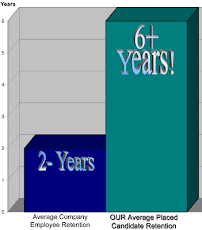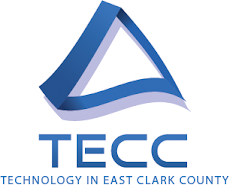Some companies believe more is better. When a company has an opening in need of top talent, some believe that contacting several recruiting firms to help source and recruit for a position is the best way to go. “Casting a wider net will find us more candidates”. This practice may be true when gathering resumes through job boards and searching the unemployment pools, but is detrimental when “hunting” for a specific person with specific skills sets and experience.
1. Multi-listing devalues the job in the market and devalues the employer brand. The law of scarcity is a powerful law.
a. If 4 recruiters call up a prospect within 48 hours, all mentioning the same job, the perception is that the job has less value. The candidate wonders why the job has to be given out to 4 different recruiters.
b. Good jobs don’t need a multitude of recruiters to fill them.
2. Quantity becomes more important than finding the BEST Candidate
a. Recruiters working multi-listing are more inclined to throw resumes at you to see what sticks. Realizing their candidate may be in the competitors database as well. As a result, they send anyone who remotely fits the job spec.
b. The result: 4 recruiters send 20+ resumes, and the client is lucky to find 1 candidate worth interviewing.
3. The company does more work and still pays the same fee
a. Take the 20+ example; you now have to take valuable time reviewing all 20+ resumes, make a multitude of calls to the recruiters to provide feedback, arrange interviews, etc. not to mention 4 separate calls to brief recruiters on the job specs. If you add this all up, compared to working with one recruiter, you probably spends 10-20 hours in duplicated communication.
4. You do more work, resents it, and start to cut corners
A. because of the above, you begin to resent the duplicated communication. Most Hiring Managers lessen communication channels – face to face and phone conversations decrease ,while - the least effective method of communication – email, increases.
b. This hurts the recruiter who needs real time, client feedback to deliver the best possible candidate as quickly as possible.
5. Exclusivity gives the recruiter time to do a thorough job to find the best candidate
a. Best candidates require drilling deep into the market to find them.
b. You don’t receive a body shop approach sacrificing quality for time
6. The reality is that all recruiters give priory to exclusive jobs
a. Because an exclusive client is relying on that recruiter
b. Probability of receiving a fee for work done is 4 times greater, thus the recruiter gives priority to you.
7. The best candidates are put forward to exclusive jobs
a. Studies show that Companies who multi-list are slower at responding to quality candidates.
b. Recruiters don’t want their reputation w/candidates damaged by slow response from clients.
c. Thus, recruits send in 2nd -3rd tier candidates who are still likely to be on the market when the slow responding client finally gets around to responding to resumes.
8. Other professions don’t do it.
a. What CPA would take on a clients tax work if 3 other CPA’s had the job and the first one finished would get the fee? What attorney would represent a client who had three or four other firms working on the same case?
If you are looking to fill a position within your company, quickly and efficiently; avoid multi-listings. Contact a recruiter that partners with you by surfacing quality talent that will fit your team.














